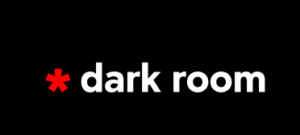Hello, the main topic of yesterday, at least in politics, is PASOK’s ascent to the position of Official Opposition after almost 15 years, albeit through a convoluted path, with plenty of drama and four splits within SYRIZA. Cause for celebration for the historic center-left party? I don’t know, time will tell, but from now on it will depend on its leader, Nikos A., whether he can maintain or even increase a respectable percentage as the second party or drown in internal strife. Sometimes, there is a second chance in life, and theoretically, he has it.
The ex with the Porsche went too far
We’ve written quite a bit about Antonis Samaras. Political criticism is one thing, but vulgarity is another. Calling the former Prime Minister worse than an anti-Hellene crosses the line. This was the mistake made by the “blue” MP Christina Alexopoulou in a post on “X” (formerly Twitter), writing: “There are many anti-Hellenes! #Samaras is one of a kind! Greece will not return to toxicity.” This is the Deputy Minister of Transport who was ousted a few months ago because she was caught touring Lesvos in a luxury Porsche. And this isn’t a matter of a momentary lapse in judgment. According to reliable sources, two close associates of the Prime Minister advised the MP to retract her statement, stressing that “this characterization does not align with the culture of the party.” However, she insists on her position, and as I hear, there will be a stricter intervention from Maximos Mansion.
Lygoura…
About Ms. Lygoura, whom K.M. dismissed yesterday from her “second chair” in the government—General Secretary for the Reception of Asylum Seekers (previously she was in the General Secretariat for Citizen Protection)—we’ve written before. The reason for her ousting was that she made a mess of things with migrants flooding Rhodes instead of being transferred to Athens’ facilities to sort things out. Just noting that she had also bungled things at Citizen Protection, so it was pretty obvious, right?
K.M. and the “positive” ministers on TV
The government wants to emphasize the effectiveness of its policies, but as is well-known, the message must also be embodied by the people presenting it. I hear that Kyriakos Mitsotakis is “deploying” ministers with portfolios tied to everyday life, who generally have a positive social footprint, with the directive being to appear on the media as often as possible. This began with the Minister of Education Kyriakos Pierrakakis and the Minister of Social Cohesion and Family Sofia Zacharaki, while the Minister of Digital Governance Dimitris Papastergiou will also join the equation.
Innuendos now, fireworks in December
Pointed remarks, but nothing earth-shattering. This will characterize Kostas Karamanlis’ speech during a book presentation in Patras, a source familiar with the mood in Rafina tells me—but let’s see. K.K. will touch on topics ranging from the woke agenda and Germany’s role to domestic matters, and he will argue that disciplinary measures (i.e., Samaras’ expulsion) do not serve harmony and unity. However, the Patras event will be just an appetizer, as on December 8, he will speak at the Old Parliament with a “menu” focused on national issues, in an event commemorating the 80th anniversary of the Karpathos uprising. That will be a whole different ballgame.
The deputy ministers’ group and their well-wishes
Wednesday evening, and my source in the upscale part of Kolonaki observed unusual activity with ministerial and MP vehicles. The reason? Another dinner of the “deputy ministers’ group” at the restaurant Kiku. Present were Sofia Zacharaki, Theodoros Livanios, Notis Mitarakis, Giorgos Georgantas, and Domna Michailidou, who gathered for a meal, with the Attica Governor Nikos Hardalias notably absent. As you can imagine, the menu wasn’t just sushi and nigiri, but also plenty of political discussion and, of course, many wishes and conversations about Domna Michailidou, who is three months pregnant.
Weak turnout
The SYRIZA debate might have sparked roaring laughter with Gletsos, wind turbines, glass windows, and his tie knot, but the party’s state isn’t exactly laughable. Among themselves, SYRIZA members say that an ideal turnout would be 70,000 (wishful thinking), while in the debate’s informal talks, the discussion revolved around 20-30,000. Given these numbers, if 50,000 show up, it will be an organizational miracle for a party attempting elections without proper logistical support. Some experienced members of Koumoundourou say the lower the turnout, the better it is for Famelos. However, if turnout ticks upward, signaling some voter rallying, Polakis has a shot.
Splitting the SYRIZA Atom
We had informed you in advance that Thursday would see another split in SYRIZA, and this one would be the most painful, as it would strip the party of its title as the Official Opposition. Apparently, there will be further departures in the near future. The independence of Fthiotida MP Giannis Sarakiotis is considered certain, while the departures of Evangelos Apostolakis and Giorgos Gavrilos are also possible. Beyond that, much will depend on the outcome of the internal party contest.
In the bargaining market for Kasselakis’ Parliamentary Group
The six MPs who left SYRIZA in November (A. Avlonitis, K. Malama, P. Pappas, R. Christidou, Th. Tzakri, G. Poulou) are considered figures influenced by Kasselakis, and their independence is directly tied to efforts to create a new party. However, for Kasselakis’ party to achieve parliamentary representation, it requires at least 10 independent MPs joining forces. The “numbers” with the six mentioned, plus Sarakiotis, Gavrilos, and Apostolakis, don’t add up. Hence, sources indicate that overtures have been made to two independents from Plefsi Eleftherias (Freedom Sailing): Michalis Chourdakis and his mother, Areti Papaioannou. There’s no agreement yet, but in such cases, everything depends on the negotiations.
Androulakis, Nina, and “First Time Left”
At the same time that independent resignation letters from Theodora Tzakri and Giota Poulou were being submitted to Parliament Speaker Kostas Tassoulas, Nina Kasimati announced on social media that she would speak at a book presentation. “And what’s strange about that?” you might ask. Nothing, I answer. It’s just that at the same event, the PASOK leader Nikos Androulakis will also be a speaker. Draw your own conclusions. I’ll just add that the title of the book, authored by Vasilis Asimakopoulos, is First Time Left: Contradictions, Conflicts, and Internal Struggles in PASOK from 1974 to 1990 and the Foundations of Its Political Transformation.
Looking for trouble (as usual)
Let me wrap up the SYRIZA-related topics with a comment. Since yesterday, I’ve been hearing the Koumoundourou cadre lambasting the departing MPs, accusing them of desertion, and chewing over the well-worn “corruption” narrative that seems to go with everything. Seriously though, don’t they wonder who’s to blame for their party falling apart? They were the ones who opened the door and passionately supported an absurdly frivolous figure like Kasselakis. It was obvious from miles away that this guy was from a completely different story. You’ll say, “What if their party gets more votes in the elections?” So what? Even Leventis once sold his brand, as did Beppe Grillo and Panos Kammenos, who used to dress as a “frogman.” So, they had it coming, and let’s hope they learn some lessons from now on, in or out of Parliament.
Piraeus Bank: The final deal that lowers NPLs below 3%
Let’s move on to market news, starting with a new securitization of non-performing loans that Piraeus Bank is preparing in the near future, which could even be described as having a commemorative character. It’s a transaction worth approximately 300 million euros, named IMOLA, which includes loans of all categories—business, SME, consumer, and some mortgages. The interesting part, however, is that this transaction is the bank’s last of its kind, and with it, the percentage of non-performing loans in the bank’s total loan portfolio will drop below 3%. This brings it in line with the average NPL levels of European banks. The transaction will be classified in the last quarter of 2024.
The Joker skyrocketed OPAP – Aiming to surpass guidance
OPAP has laid the groundwork to exceed the EBITDA guidance provided by its management for 2024. The exceptional third quarter it announced was well-received by analysts, who now suggest that surpassing the target is very likely. With the management indicating that EBITDA will reach the higher end of the forecast, around €770 million, some analysts estimate it could go even higher, potentially reaching €785 million. One of the key factors behind the strong performance in the third quarter was, naturally, the Joker lottery. It’s notable that net revenue before contributions from numerical lotteries in Q3 stood at €200 million, up 20.5% year-on-year, primarily due to the Mega Jackpot of €19 million in Joker, the second largest in the game’s history, resulting from 35 (!) consecutive draws without a winner. Meanwhile, during yesterday’s conference call presenting the nine-month financial results, analysts repeatedly asked why the guidance was not being revised upward, given the strong results announced by the organization and the historical trend where Q4 is always OPAP’s strongest quarter. CEO Jan Karas stated that there’s no apparent concern or obstacle preventing a revision, but management sees no reason to adjust targets so close to the year’s end. He reiterated confidence in achieving the current goals.
The time for TERNA Energy has come
By next Thursday at the latest, the stock market transfer of 67% of TERNA Energy to Masdar will be completed. Masdar is already planning significant investments in offshore wind farms and photovoltaics. After the stock transaction is finalized, a public offer will follow, giving all shareholders the right to sell at the same price that GEK TERNA sold for. GEK TERNA stands to benefit not only from the sale proceeds but also from relieving its energy subsidiary of debt obligations. As a result, its market capitalization has returned to €1.8 billion, with a +2.45% rise in share price to €17.5.
The surprise from Attica Bank
Yesterday’s session began with the usual drop in Attica Bank’s share price, hitting -29%. This marked the 7th consecutive limit down for the stock, which is considered normal given the new shareholder dynamics. However, this held true only until 10:39 a.m. At precisely 10:40 a.m., a major sell order of 1.5 million shares of Attica Bank “disappeared,” and buyers emerged for 3 million shares, pushing the price from €0.524 to €0.676, from -29% to -17%. Suddenly, Attica Bank’s stock is drawing dual market interest. On one side, there are the daily traders glued to their keyboards, reacting to market data. On the other, at the current valuation of €954 million, longer-term investors believe that within 6-12 months, Attica Bank’s financial performance could validate its status as Greece’s “5th banking pillar.”
The Capital Market Commission prepares for cryptocurrencies
The Capital Market Commission is gearing up to assume responsibilities regarding cryptocurrencies and related assets, as the EU’s MiCA regulation for their oversight takes effect from January 1, 2025. Yesterday, a seminar-presentation was held for the Commission’s staff, featuring none other than Carlo Comporti, Commissioner of Italy’s Consob, who heads ESMA’s Digital Finance Steering Committee (DFSC). Today, C. Comporti, Karen Dorothea Abelskov, Director-General of Denmark’s Supervisory Authority, and the Capital Market Commission’s President V. Lazarakou will speak at a cybersecurity conference.
The investor buying into TITAN and ELVALHALCOR
The activity surrounding TITAN Cement’s stock is unprecedented, not only in terms of performance but also in transaction volume. The stock reached a historic high of €37.1, with another impressive rise of +4.36% yesterday, accompanied by 233,578 shares traded. The market capitalization is nearing €3 billion, 86% higher than last year. Simultaneously, it appears that the same foreign, clearly powerful buyer is pairing TITAN’s cement with the aluminum and copper of ELVALHALCOR. ELVALHALCOR’s stock surged +9.36% to €1.8, with notable trading volume of 428,218 shares, boosting the company’s market value to €675 million. Reports from brokerage firms suggest that the same buyer is behind both stocks. ELVALHALCOR gained traction following its nine-month results, which showed a doubling of net profitability and significant debt reduction. Given the substantial sums at play on these two stocks, it appears a strong portfolio is building its position.
The logo panic
Since the recent uproar over the Thessaloniki metro logo is still fresh, here’s some relevant news: TIF-Helexpo has announced a design competition for the centennial anniversary logo of its founding, with a submission deadline of December 20. This artistic competition is part of the celebratory events planned throughout 2025, marking 100 years since the organization’s inception. It’s open to professionals (architects, graphic designers, advertisers, artists, etc.), graduates, students (of Polytechnic Schools, Fine Arts, Visual Arts, and related disciplines), and private individuals who wish to participate. Entries can be individual or group submissions with no limit on team size. The winner will receive a €2,000 cash prize, while the second and third place entries will receive €1,000 each. TIF-Helexpo’s board has formed an Organizational and Review Committee to ensure high-quality entries and select a logo that “highlights the history, values, and contributions of the institution to Greece and internationally.”
MSCI rebalancing
On November 25—just before Thanksgiving—the latest rebalancing of MSCI indices will be completed. No changes are expected in the large-cap index (theoretically, as MSCI can be unpredictable). In the MSCI Small Cap, the removal of ELLAKTOR is anticipated. The “big” MSCI Greece Standard Index currently consists of nine stocks: OTE, Metlen, OPAP, PPC, Alpha Bank, National Bank, Eurobank, Piraeus Bank, and Jumbo.
In anticipation of today’s “oracle” by FITCH
They want to, but they don’t dare. They read the results of the listed companies, study the indicators, but they are not in a hurry to buy because they are afraid of the international environment. In anticipation of today’s “declaration” by FITCH (there is an expectation for an upgrade of the outlook from stable to positive), with transaction value less than 100 million euros (to be precise, 86.44 million euros, of which 6.6 million in blocks), based on Titan’s performance and the good presentations by the banks in London, the General Index approached the psychological threshold of 1,400 points but did not complete the effort, closing at 1,397.63 points, with gains of +0.94%. Yesterday’s session could have gone better if foreign portfolio managers hadn’t seen European markets “in the red,” as everyone was counting missiles and analyzing the new leadership’s inspirations on the other side of the Atlantic. Among the banks, only Eurobank attracted investment interest with a gain of +2.2% at 2.04 euros, while the other banks maintained a positive trend. OPAP left many promises for a better dividend, and yesterday it gained +1.8% at 15.3 euros. For the Motor Oil stock, many analysts believe that the worst is over (fires, losses, inventory issues, etc.), and that its previous downward path has already priced in the bad results, but from November, a new positive trend begins. As a result, the stock closed with modest gains of +0.36% at 19.32 euros. DEI also performed well (+1.64%) at 11.75 euros, but it will need more trades to convince investors about its prospects.
Has the time for deregulation come?
Trump’s return to the Capitol came to confirm something that we here in Europe persistently ignore: the new, widely spread trend in Western societies to free themselves from over-regulation of everything. The German Bank Berenberg sat down and studied what has happened in the largest economy in Europe, Germany. The conclusion of the study is revealing: Excessive regulations and suffocating bureaucracy continue to stifle economic growth. Since 2011, there have been more laws and regulations added to German legislation than those removed. The recurring cost of business compliance has increased by 30 billion euros (0.7% of GDP) until the end of 2024. The majority of this increase, according to Berenberg, began in 2021 and continues to this day. One-off costs for meeting the new compliance requirements have also increased in recent years, totaling 14 billion euros in 2021 and 21 billion euros in 2023, according to Berenberg Bank calculations. Thus, a new global trend is now taking shape, one in which investors are avoiding traditional markets and seeking refuge in decentralized, non-state assets, with the most prominent example being cryptocurrencies.
Ask me anything
Explore related questions





